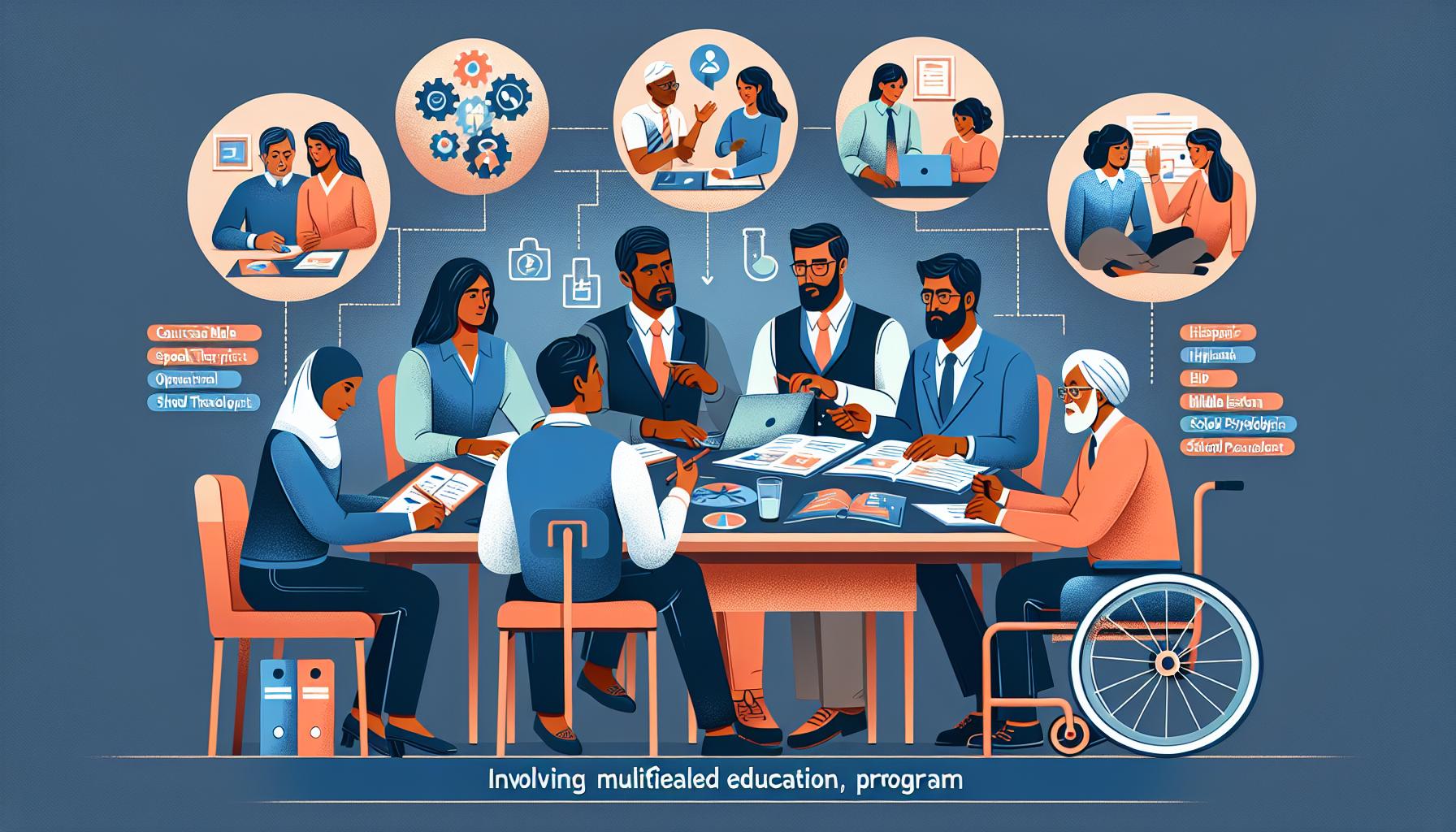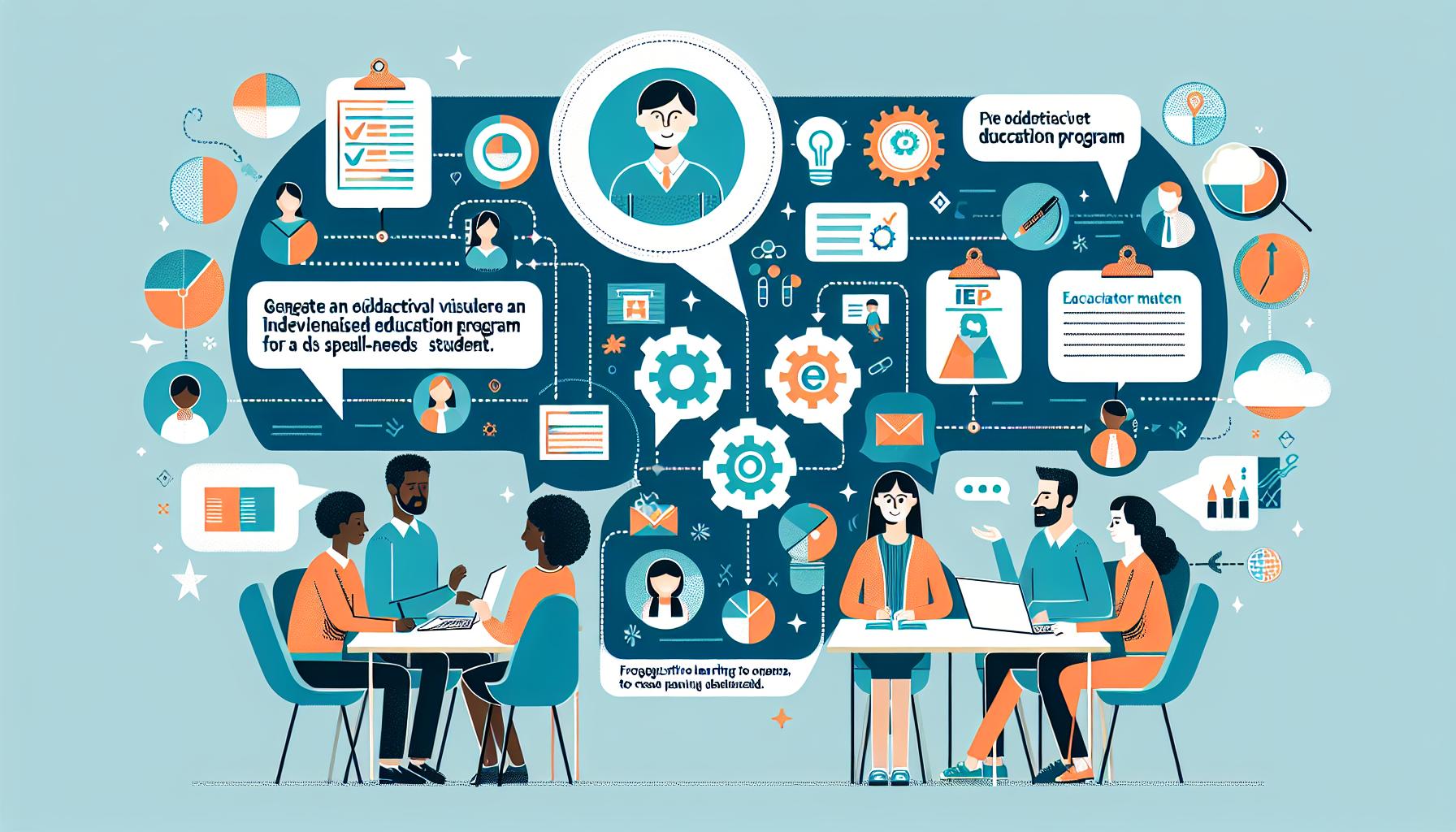Understanding the Role of LEAs in Special Education: A Comprehensive Guide
When you’re navigating the world of special education, you’ll come across a slew of acronyms that can seem confusing at first. One of these is LEA, a term that’s crucial in understanding how special education services are provided.
LEA stands for Local Education Agency. It’s essentially your local school district, the body responsible for ensuring your child receives the appropriate special education services. But what does this mean for you and your child? Stick around, and we’ll dive deeper into the significance of LEA in special education.
Key Takeaways
- LEA stands for Local Education Agency. Its role in special education is significant as it primarily encompasses your local school district, but may also include charter schools and virtual schools.
- The LEA has a directive to ensure every child with a disability has access to a Free Appropriate Public Education (FAPE) in alignment with the Individuals with Disabilities Education Act (IDEA). This includes a range of services like therapy and counseling.
- LEAs play a crucial role in developing an individual child’s Individualized Education Program (IEP). This is a roadmap for a child’s education that outlines their individual goals and the services needed to achieve them.
- The LEAs foster a relationship with parents by facilitating open dialogues. This enables parents to contribute insights about their child’s abilities and challenges, providing a more detailed understanding of a child’s specific needs.
- Detailed understanding of your Local Education Agency’s responsibilities helps to navigate the special education process effectively. The extent of the LEA’s influence highlights its pivotal role in achieving the best possible educational outcome for each child.
- A key approach to ensure your child benefits from LEA services involves effective communication, understanding your child’s IEP, ensuring transparency in the process, and being comfortable with the digital platforms used by LEAs.
Understanding LEA in Special Education

When navigating the system of special education for your child, there’s no shortage of terminology. Among these, LEA, also known as a Local Education Agency, ranks as one of the most significant. The LEA equates primarily to your local school district but it also encompasses charter schools and virtual schools in some regions. Understanding the role and impact of the LEA can empower you as a parent and ensure your child receives tailored, quality education services.
A key directive of the LEA is to guarantee every child with a disability has access to a Free Appropriate Public Education (FAPE) inline with the Individuals with Disabilities Education Act (IDEA). This includes children who have not yet started school, those who’ve been suspended or expelled, kids who’ve moved a lot, homeless children, and wards of the state.
FAPE is a powerful tool for your child: it provides access to services such as physical therapy, speech-language pathology, psychological services, school health services, and counseling services. With the LEA’s obligation rooted in equity, your child’s unique needs and circumstances are recognized and nurtured in a meaningful educational setting.
The LEA plays an instrumental role in developing your child’s Individualized Education Program (IEP). The IEP is a dynamic roadmap for your child’s education, developed collaboratively with parents, educators, and relevant specialists. It outlines the individual goals for your child and the services needed to achieve these goals. Your LEA’s involvement ensures resources and expertise are best applied to serve your child’s academic growth and development.
In amplifying the voice of parents, the LEA offers another layer of support. They facilitate communication and collaboration, allowing you to become an active partner in your child’s education. Through open dialogue, you’ll have opportunities to share insights about your child’s abilities and challenges, shaping the approach and strategies deployed in their education.
As you move forward on this journey in special education, remember the pivotal role LEA holds. Their mandate to provide, their capacity to coordinate, and their commitment to collaborate define their substantial impact on your child’s education. Absorb this knowledge, take some time to understand your local LEA, and equip yourself with a powerful tool to advocate for your child’s rightful education experience.
Role of Local Education Agency (LEA)

Delving deeper into the world of special education, you’ll encounter a vital presence, the Local Education Agency (LEA).LEA’s role in special education is multifaceted, encompassing responsibilities that allow children with disabilities to access a Free Appropriate Public Education (FAPE) in line with the Individuals with Disabilities Education Act (IDEA). It’s integral to comprehend how LEAs fit into the special education puzzle to effectively champion your child’s needs.
Primarily, LEAs are responsible for implementing and developing Individualized Education Programs (IEPs) for each special education student. A properly drafted IEP is at the heart of a child’s educational growth. LEAs coordinate with educators, therapists, and other specialists to craft these documents, making them closely tailored to the needs and goals of the individual child.
Their focus extends to executing these programs through specialized instruction and related services like:
- Speech and language therapy
- Counseling
- Behavioral intervention plans
Similarly, LEAs also shoulder the responsibility of creating a conducive learning environment. This involves procuring appropriate resources, facilitating supportive teaching strategies, and employing suitable technologies. Their job doesn’t end here. LEAs act as a support system for parents, empowering them by providing the necessary information and resources. They play a critical role in fostering a collaborative relationship amongst educators, therapists, administrators, and you, the parents.
Understanding the role of the LEA provides a comprehensive look at how students with disabilities can expect to receive their FAPE, meeting their unique needs and preparing them for further education, employment, and independent living. Every school district is required by law to have an LEA to fulfill these roles effectively. Therefore, familiarizing yourself with your LEA’s obligations is a significant tool in your arsenal when advocating for your child within the special education system.
The extent of the LEA’s influence makes it clear why they’re such a pivotal clog in the grand scheme of special education. So, as you navigate through your child’s journey helpfully armed with this knowledge about LEA’s functions, remember, you’re not alone. Equipped with the right information and support, you can ensure that your child’s unique educational needs are not only met, but exceeded.
Responsibilities of LEA in Providing Special Education Services
As you delve deeper into the role of LEAs in special education, it’s crucial to understand their responsibilities. LEAs carry a plethora of duties to ensure all students with disabilities receive an equitable and adept schooling experience tailored to their specific needs.
One of the primary tasks of the LEA is developing robust Individualized Education Programs (IEPs). IEPs are unique to each student and encompass the specific educational goals, necessary services, and the setting of instruction that meet the student’s individual needs. These IEPs serve as a roadmap for the child’s academic progression, tracking progress while continually updating to reflect the student’s ongoing growth and advancement.
Similarly, LEAs are responsible for arranging necessary services like therapy and counseling. These can encompass occupational, physical, and speech-language therapy, alongside counseling services to aid the emotional well-being of the child.
Creating a stimulating learning environment that fosters growth and learning forms yet another part of an LEA’s responsibility. They strive to give students an environment where they feel safe, accepted, and capable of achieving their maximum potential.
In addition to this, LEAs also imbibe a supportive role for parents, offering them crucial information about their child’s education, the special education process, and how they can best advocate for their child’s needs. This aspect of their role bolsters successful collaboration between parents, educators, and therapists, improving outcomes for children.
But remember, this responsibility doesn’t end with the academic term. LEAs are also obliged to tackle each child’s transition from school to post-school activities, whether it be further education, employment, or independent living. This preparation for future endeavors is aimed at ensuring that every student receives a Free Appropriate Public Education (FAPE), setting them on the path for long-term success.
Deciphering the role of LEAs in special education can seem a daunting task, but understanding these responsibilities helps elucidate their integral role in the process, helping you effectively navigate the world of special education.
Collaboration Between LEA and Parents for Special Education
As a key player in the special education process, the Local Education Agency (LEA) recognizes that parents are essential collaborators. Building a constructive relationship with parents can be pivotal in crafting a comprehensive Individualized Education Program (IEP).
Part of this collaboration involves transparency. As a parent, you’re entitled to understand the specifics of your child’s IEP. LEAs are responsible for keeping you in the loop about your child’s progress and any changes to their IEP. This open communication fosters trust and ensures you’re equipped to provide optimal support for your child.
Moreover, the LEA facilitates parent training. This may be as straightforward as helping you understand your child’s needs or as complex as equipping you with skills to actively be part of their therapeutic programs. This training empowers you to participate in decision making and helps you become a proactive advocate for your child in the education system.
Collaboration is a two-way street. The SOEP works proactively to foster a constructive relationship with you as parents and encourages your active participation. LEAs recognize that no one knows your child better than you do, and your insights are valuable in shaping their education strategy.
To streamline communication, LEAs often use various digital platforms. This tech-savvy approach ensures that you can easily access IEP materials, schedules, and progress reports. Staying updated is as simple as checking your email or logging into a dedicated parent portal.
In the quest to provide a Free Appropriate Public Education (FAPE), the critical bond between you and the LEA can’t be overstated. By fostering this alliance, LEAs ensure that special education is tailored to fit not just the needs of the student, but also the circumstances and dynamics of the entire family.
Making the Most of LEA Services for Your Child

To ensure that your child is getting the most out of the services provided by Local Education Agencies (LEAs) you need to be proactive, informed, and engaged. Here are key approaches to optimize the impact of these services on your child’s education.
Communication is everything when it comes to working with LEAs. Regular dialogue between parent and agency can bridge educational gaps. It’s about raising concerns, asking questions, and contributing useful information about your child’s learning and behaviors at home. It’s the shared responsibility of both the LEA and the parent to keep this communication line open and collaborative.
Emphasize on Individualized Education Programs (IEPs). Working closely with the LEA, you help develop a comprehensive IEP for your child. The IEP should be tailored to fit your child’s unique needs, incorporating goals and objectives that maximize their learning. Remember, your knowledge of your child’s strengths and areas of need is a valuable input in designing their IEP.
Transparency is essential in this process. LEAs should provide clear and complete information about your child’s progress and the services they’re receiving. This keeps you informed and better prepared to make decisions that have a direct impact on your child’s education. Direct access to such information also allows you to advocate effectively for your child.
Understand the digital platforms used by LEAs. These systems are a wealth of information that can inform your decision-making process and give you a clearer idea of what is happening in your child’s education. Being comfortable with these platforms allows you to navigate and utilize the information available, ultimately promoting active involvement.
Through such a comprehensive approach, you are able to establish a powerful partnership with the LEA in promoting the Free Appropriate Public Education (FAPE) in your child’s unique circumstances. There’s no better way to ensure the molding and shaping of your child into a successful individual.
Conclusion
So, there you have it. The role of LEAs in special education is pivotal, and your active involvement as a parent can significantly enhance their effectiveness. By staying informed, engaged, and proactive, you’re not just a spectator but a key player in your child’s educational journey. Remember, understanding and utilizing LEAs’ digital platforms, participating in IEPs, and maintaining open communication channels are crucial. These steps will help pave the way for a tailored FAPE that suits your child’s unique needs. The partnership between you and the LEA can truly make a difference in promoting your child’s long-term success. So, take the reins and make the most of the resources and support your LEA provides.
What is the primary focus of the article?
The article mainly focuses on the essential role of collaboration between Local Education Agencies (LEAs) and parents in enhancing the special education process, with an emphasis on communication, parental involvement, transparency, and understanding of digital platforms used by LEAs.
How can parents optimize the impact of LEA services?
Parents can optimize the impact of LEA services by being proactive, informed, and engaged. This includes active participation in their child’s Individualized Education Programs (IEPs), transparent information sharing, and understanding the digital platforms LEAs use.
What is the importance of parents’ involvement in Individualized Education Programs (IEPs)?
Parents’ involvement in IEPs is crucial as it ensures that their child’s unique needs and circumstances are considered in the educational process, thus enabling the provision of Free Appropriate Public Education (FAPE) tailored specifically to their child.
What is the role of digital platforms in the collaboration between LEAs and parents?
Digital platforms facilitate communication and information sharing between LEAs and parents, helping them participate actively in their child’s education process and promote a meaningful and effective learning experience for the child.
How does collaboration with LEAs promote the child’s long-term success?
By collaborating with LEAs, parents can ensure their child receives an education tailored to their unique needs, consequently fostering a conducive learning environment that will lead to the child’s long-term academic and personal success.
The post Understanding the Role of LEAs in Special Education: A Comprehensive Guide appeared first on Special Education Journey.
Understanding the Role of LEAs in Special Education: A Comprehensive Guide published first on https://special-education-journey.com/
Comments
Post a Comment